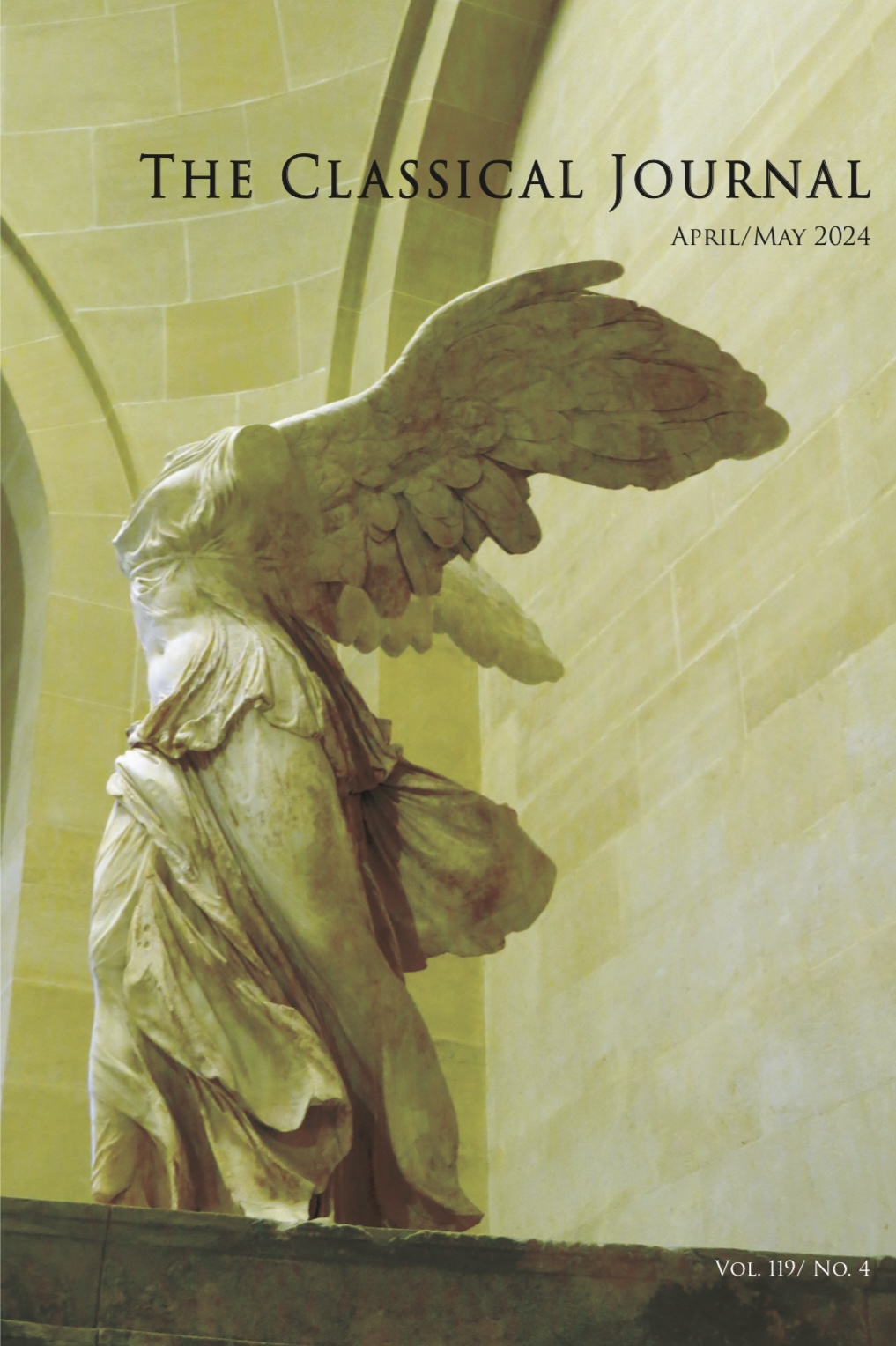The following articles are contained in CJ
110.4
Abstracts of Articles
Medea Reaches Maturity: On Ovidian Intertextuality in Sen. Med. 905–15
This article offers some thoughts on Seneca’s Medea and especially on lines 905–15 near the end of the play, which are key to understanding the construction of the protagonist’s identity throughout the text. They bring to the fore the joint presence of anger and love in the character’s psychology and, recurring to elegy as a point of entry, attempt to delineate an intertextual relationship with Ov. Am. 2.18, aiming at evoking the ‘ghostly’ presence of Ovid’s lost Medea. The article falls into two major sections: the first part focuses on distinctive features of Seneca’s portrayal of his heroine, like the representation of her intense emotions, the maius-motif, the sophisticated and complex interplay between previous models and the character’s poignant self-awareness. The second part revolves around the issue of intertextuality, whereof one specific moment is spotted at a microexegetical level in the epilogue of the play.
Self-Knowledge in Xenophon’s Memorabilia 4.2
Whereas Plato’s Socrates discusses the Delphic maxim “Know Yourself” frequently, Xenophon’s Socrates does so only once (Mem. 4.2.24), in his conversation with Euthydemus, a confident young man zealous about leading the city. Previous scholars have read Socrates as equating “knowing yourself” with “knowing your powers.” But knowing your powers is only one condition of self-knowledge, as a closer reading of Mem. 4.2 shows, in particular Socrates’ analogy about judging a horse for purchase. Knowing yourself means coming to act on the basis of your knowledge of justice and goodness, and acting on this basis frees you from a self-imposed enslavement. Xenophon’s understanding is thus richer and more philosophically sophisticated than is usually assumed.
The Economics of Agalmatophilia
Several popular stories from the 4th-2nd centuries BC describe the lust that specific statues inspired in otherwise unknown Greek men. These accounts follow the pattern of urban legends, which suggests that they may be fictional tales created and disseminated for a particular purpose: to attract tourists and their money to cities that possessed alluring statues.
Love or War? Erotic and Martial Poetics in Claudian’s De Raptu Proserpinae
This article treats genre, love, and violence in Claudian’s De Raptu Proserpinae, with particular reference to the precedents of Ovid'sMetamorphoses and Statius’ Achilleid. The first part establishes the poem’s varied generic voices (notably elegiac, epithalamic and martial epic). The second part ties the presence of competing martial and erotic voices to the poem’s exploration of conflicting interpretations of the Dis-Proserpina union as exemplifying love or war. It highlights the potential for discord in the interpretation of the union as an example of love, especially in examples of symbols which can be approached from an epic perspective and from the elegiac or epithalamic sphere.
Thucydides, Timotheus, and the Epitaph for Euripides
This article discusses the epitaph for Euripides, found both in the Vita Euripidis and in the Greek Anthology (AP7.45), and attributed in antiquity to Thucydides and to Timotheus. It reviews the contexts in which the epitaph was cited in antiquity, discusses reasons for the joint attribution, and determines what we can conclude about the authorship and probable date of composition.
Prodigies, the Pax Deum and the Ira Deum
In this article, I examine the relationship between prodigies and the pax and ira deum. I follow Santangelo in arguing that prodigies did not represent ruptures in the pax deum. Instead, they were simply signs that the pax deum was needed to avoid some impending disaster. In addition, I argue against the traditional understanding of prodigies as expressions of the ira deum brought about by Roman error: although prodigies were sometimes the result of ritual mistakes, they could also simply happen, with no connection at all to human action or divine anger.


